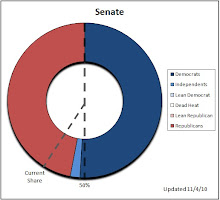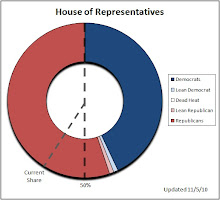Thank you for tuning in to the next installment of Cal Bowen's "What Would I Do If I Could?" In this episode, Cal analyzes the economy of the United States and what actions he feels need to be taken.
“The government's view of the economy could be summed up in a few short phrases: If it moves, tax it. If it keeps moving, regulate it. And if it stops moving, subsidize it.” Those were the words of Ronald Reagan. Nearly all of the problems of the American economy stem from government intervention.
Let’s take a brief look at the history of the United States tax system. The U.S. Treasury web site provides a detailed account. If you wish to learn more, please visit:
http://www.ustreas.gov/education/fact-sheets/taxes/ustax.shtml
“For most of our nation's history, individual taxpayers rarely had any significant contact with Federal tax authorities as most of the Federal government's tax revenues were derived from excise taxes, tariffs, and customs duties.” The income tax was first introduced during the Civil War to pay for high war costs quickly. The Supreme Court later struck down the income tax as unconstitutional because it was not proportional to state population, as the Constitution required of any tax levied on citizens.
The next time that the income tax was introduced into American society was in 1913 when the sixteenth amendment was ratified to legalize an income tax. Interestingly enough, it was the Southern and Mid-Western farmers who supported the amendment because they wished to take a bite out of the Industrial northeast. The income tax was supposed to replace high tariffs, which were not sound economic policy. Little did they know they were fighting fire with fire.
The income tax was incredibly low in the first few years, starting at 1% on earnings over $500,000 and growing to 7%. When World War I came around, a need for income arose once more. The income rate was raised and more brackets were created, with some incomes being taxed at up to 67%. Still, in the end, a mere 5% of the population of the United States paid income taxes. That 5% paid for one-third of the war.
After World War I, there were the “Roaring Twenties.” Calvin Coolidge became President in 1923 upon the death of Warren G. Harding. Coolidge had an old-school way of viewing the way the government should run. He once said, “Collecting more taxes than is absolutely necessary is legalized robbery.” He appointed a man named Andrew Mellon to be his Treasury Secretary.
During Coolidge’s administration, Mellon worked to lower income taxes to further stimulate economic growth spurred by World War I. The successes were amazing. According to The Forgotten Man, by Amity Shlaes, after reducing income taxes for the highest incomes by 50 percent (and that means from 75% to 25%), “the after-inflation earnings of employees grew 16 percent from 1923 – 1929 … Mellon was managing to balance the budget and to reduce the staff of tax officials at the Bureau of Internal Revenue. The policy was so well regarded that even Democrats, the party of the income tax, argued for lower taxes.” Unemployment dropped. The national debt was reduced by 33%. Even Thomas Edison, in a New York Times interview endorsed Coolidge for President for a second full term. But, alas, Coolidge felt it was time to step down after serving one and a half terms. Prosperity seemed eternal.
Then, the stock market crash of 1929 occurred. While the causes of the crash have been blamed greatly on unethical business practices of the era, the greater picture is often misplaced. Stock market crashes were not uncommon by any stretch of the imagination in our nation’s economic history. The stock market dropped 40% from 1916 to 1917 and again from 1939 to 1942, 45% from 1973-1974, 46% from 1901-1903 and 1919 to 1921, and 48% in 1929. That’s the big one right? That’s the one that led to the Great Depression, right? Well, actually, that’s not the worst drop we’ve seen. There are three stock market drops greater than that of 1929, the worst of which was a drop of, get this, 86% in 1932!
So, what exactly could have caused the continued economic downturn that would lead to the depths of the Great Depression? Well, the American government, in its infinite wisdom, increased the income tax dramatically in response to the stock market crash of 1929 because it saw a loss in revenue. Herbert Hoover, an engineer by trade, sought to engineer an economic recovery. To fund his programs, he needed money, and the only way he could get it was to raise taxes back up. By 1936, he had raised the income tax back up to 79% for the top bracket and 4% for the lowest.
So what? So the government took money away from the rich to give to the poor, what’s the problem? The problem is that the only way to sustain a genuine economic recovery, and to put food in people’s mouths permanently, is to stimulate economic growth, to foster new business, and to create jobs. What’s the saying? “Give a man a fish; he’ll eat for a day. Teach a man to fish; he’ll eat for the rest of his life.” The rich create businesses to make further profit. Those businesses provide jobs to those who need them and create products for others to consume, creating a never-ending cycle. When you create an environment, however, where you penalize profit, take money away from those who create jobs, and create uncertainty over the future of the economy, you devastate chances at economic recovery.
Since those days, we have crawled out of the depths of the Great Depression. After years of more programs and continually high taxes under FDR, World War II bailed the country out of a horrible economic situation. Since that time, however, the United States economy has continued to be hampered by a cumbersome government intent on implementing social engineering through economic policy. While the men who espouse these theories certainly were not Communist, they were clearly influenced by Communist doctrine.
Today, these policies have created a class of dependency, people who need and feel they deserve government support. In reality, the best ruler of economic activity is the “invisible hand” of Adam Smith. Supply and demand, the basic principles of a capitalistic society are far superior at the generation of jobs and continued support of both the rich and the poor. All the government can do is give a man a fish.
The first action that must be taken in order to return the American economy to its full strength is to repeal the sixteenth amendment. The income tax is an irrational tax code formulated out of necessity, not as the principle method of raising government revenue. It punishes economic success. It creates class warfare that Karl Marx insisted upon. The best alternative is the Fair Tax which would establish a flat sales tax across the board. Think about it. A sales tax actually makes sense. The government actually provides a service for those goods to be available to you. The government paid for the roads for them to be brought to you own. The government defends your right to purchase it. The government deserves a certain amount of pay for the availability of those goods.
Some argue that the sales tax is regressive and would penalize the poor. While I do not believe that would necessarily be the case, sense we’re talking about a percentage of purchases that would include those big yachts and and fancy toys, do you not agree that it is better to create further incentive to succeed economically rather than to punish you for doing so? Also, one more positive, wouldn’t it be great if we had a tax system that had no loopholes for the rich? This would fill the bill. You buy something, you pay x percent. No loophole there. It’s simple. It’s fair.
The next action that must be taken in our economy today is we must destroy the government-run programs designed to distribute income. This really goes hand-in-hand with the argument above, but I felt I should clarify it. Programs such as Social Security essentially take money from the rich and give to the poor. It sounds like a good idea, but what you get in the long run, as we can see today, is a class of people who have become dependent on the government, and, in this case, a party. The irony is that the program intended to lessen the gap between rich and poor in actuality widens the gap and creates more poor. The economic burden of welfare harms the economy, decreases the number of jobs available, and, worst of all, keeps people coming back for more. In the end, you get a system that can no longer pay for itself. We should begin a phased removal of all government programs designed to distribute wealth, beginning with the privatization of Social Security as soon as possible.
One last issue I would like to address in the economy is that of the minimum wage. The minimum wage was another idea designed with the best of intentions, with horrible results. Wages for all jobs are naturally determined on a supply and demand basis. When a person applies for a job, he is competing with all other applicants. All of the applicants represent the supply. The demand is how much the businesses are willing to pay for those potential employees. In the end, the business will set a wage that somebody is willing to work for, and that is the most efficient level of wages. This is how the system works. The minimum wage takes the process out of the hands of employers and employees and, instead, places it in the hands of politicians in Washington, D.C. This is dangerous because politicians are always out for the vote and employees vastly outnumber employers. That is why the minimum wage set by Washington will always favor the employee and be higher than what is most efficient. This may seem negligible, but it won’t seem so negligible when you are competing for a job that doesn’t exist anymore because the company had to cut back somewhere to make up for lost profit.
All of these issues tie together in the basic concept of government non-intervention. The government has never done a single thing to help the economy other than to cut taxes, which is, essentially, deciding not to do as much. We must move the country in the direction of a smaller government that allows the free market system to truly run the economy. It’s the best system ever designed and it is responsible for every success we have seen.
Applying common sense to politics...










No comments:
Post a Comment